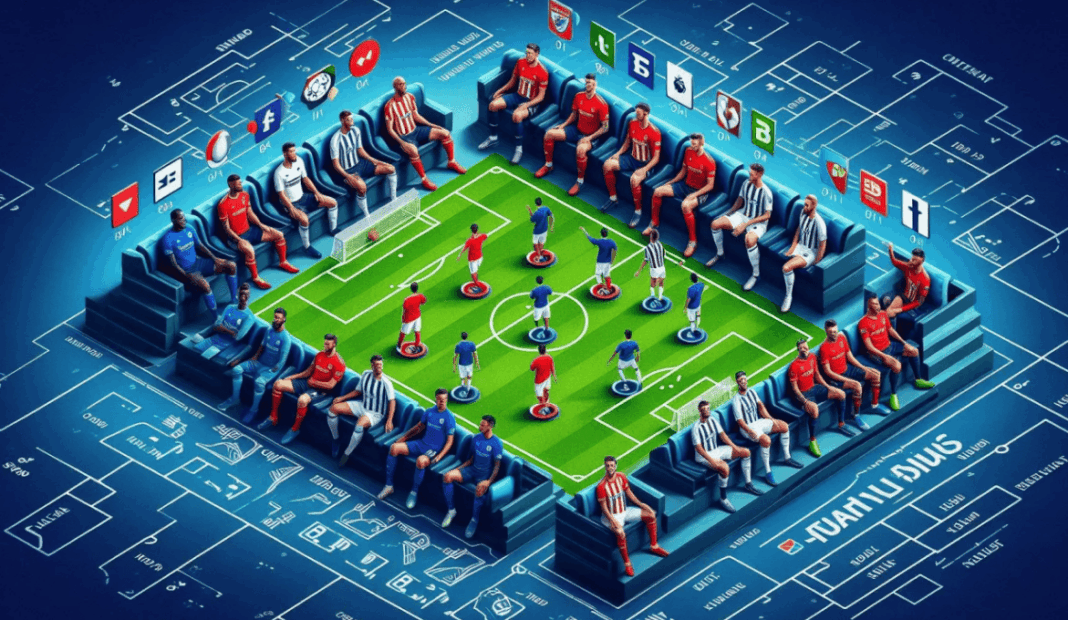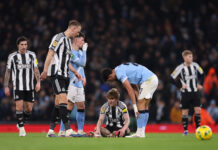Team tactics define success in football. Matches rarely depend only on individual talent. The way a team shapes its play often decides who dominates the pitch. This article explores how tactical systems work, why managers adapt them, and how they impact results. It also explains the balance between entertainment and responsibility when betting on games.
The Role of Tactical Systems
Every Premier League team uses a tactical framework, and even in areas where fans follow sports betting BH strategy on the pitch is seen as the foundation of results. A system gives players structure. It tells defenders when to push forward and attackers when to track back. Without it, matches fall into chaos.
The 4-3-3 remains a common setup because it balances defence and attack. Midfielders control the pace while wide forwards stretch the game. Some managers prefer a 3-5-2, which uses wing-backs for constant runs. Others choose the 4-2-3-1, a shape that protects the defence and allows creative midfield play.
Numbers alone do not explain everything. What matters most is how players understand their roles. A well-drilled squad can make even a simple system look strong.
Adapting to Opponents
Managers rarely stick to one plan for an entire season. Opponents vary in strength and style. Tactical flexibility ensures survival and success.
When facing fast counter-attacking sides, teams often sit deeper and focus on compact lines. Against possession-heavy teams, some managers press high and disrupt passing lanes. This adjustment can turn difficult games into manageable ones.
Data shows that pressing intensity often changes match outcomes. Teams with a higher press recover the ball closer to goal, creating quick chances. Yet pressing without discipline drains energy and leaves gaps. The balance lies in timing.
Key Elements That Shape Matches
Several tactical choices shape the rhythm of play. Among the most important are:
- Pressing style: High press, mid-block, or low block.
- Formation shifts: Changing from defence to attack quickly.
- Set-piece planning: Corners and free kicks often decide tight games.
- Player roles: Midfielders shielding defence or creating overloads.
Each decision carries risks and rewards. A high defensive line, for example, compresses space but leaves room for fast attackers. Teams that calculate these risks well often stay near the top.
The Human Element
Tactics look perfect on paper, yet execution depends on players. Communication on the pitch builds trust. One mistake can break a defensive line. One clever pass can unlock a crowded box.
Managers often highlight discipline as much as creativity. A winger tracking back shows that teamwork matters as much as goals. Modern football rewards effort as much as flair.
Leaders on the pitch often make the biggest difference. A captain who organises his teammates can calm nerves and maintain structure. Even the best plans fail if voices go missing during key moments. The strongest teams combine talent with leadership that inspires consistency.
Betting and Responsible Play
Fans often place bets on tactical battles. Live betting offers markets that respond to formations and substitutions. A tactical change can shift odds within minutes.
Still, betting must stay entertainment. The house always holds the advantage. Players should set limits, play responsibly, and never see betting as income. Responsible gaming protects fans from financial risk and keeps the focus on the sport.
Clear thinking and discipline matter here as much as on the pitch. Knowing when to stop ensures that enjoyment lasts. Responsible play keeps betting safe and turns it into a controlled hobby rather than a problem.
Tactics remain the heart of the Premier League. Managers craft systems that shape every pass, run, and shot. Players bring those plans to life with discipline and skill. Fans enjoy the drama that unfolds from these choices, both on the pitch and through analysis.
Football shows how strategy and teamwork matter as much as individual talent. When betting enters the picture, it should always stay safe and responsible. Entertainment must never turn into risk.





